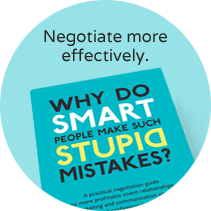Insights

It’s not what happens at the conference – it’s what happens after
How many times have you attended a great conference and come away with pages of notes and actions? You left the conference on a real high, buzzing with new ideas, energy and perspectives. Within 24 hours the ideas and actions have become intentions. Within 2 days they are forgotten? Sometimes it is just a few golden nuggets which make the conference valuable to you.
On the 31st of December many people make New Year’s resolutions. Their resolutions are typically about something really important in their lives such as losing weight, drinking less alcohol, eating more healthily, exercising more…. By the 17th February the majority of those resolutions are merely a distant memory, a guilty regret, until December 31st the next year. Why is that? Firstly we are creatures of habit. We are driven more by our habits and ‘auto-pilot’ than we realise. Secondly we return to our workplace in the January and the mountain of emails and other work subsume the resolution (or the conference actions).
This is an important issue for conference organisers, conference attendees and conference speakers, not to mention the client who paid for the event. This will influence whether delegates will attend the next conference.
It starts with having clarity of the outcomes for the conference for each of these 4 stakeholders. (conference organisers, conference attendees, conference speakers and the client if appropriate) What are the outcomes you require? Do you want delegates to take action, be informed, be inspired or entertained, or maybe all four? I speak at conferences on profitability, trusted adviser selling and winning new business. I want the attendees to take action provoked by what I’m saying but I also need to entertain them, to engage, to inspire them and motivate them. As a speaker I must avoid the audience experiencing overwhelm in terms of the quantity of content.
What draws you to attend a conference as a delegate? Is it the big name celebrity, or the subject matter expert, or is it hearing best practice from others in your industry? Or is it to step away from the day to day and give yourself a different perspective? Or maybe to energise and motivate ourselves? Or is it to network in the corridors and over coffee? Or is it just time away from the office to have a ‘jolly’? In truth I often want all of those! Or is it because you have to attend because your boss says you must?
Our time is more valuable than ever. As an attendee I must be convinced that time away from ‘the office’ will be worthwhile. As a conference speaker I will continue to ask my client exactly what outcomes they want, what success will look like and to understand the wider picture of the whole conference, not just my contribution. My aim as a conference speaker is to educate, inspire, entertain and provoke fresh thinking and provide a new perspective.
I attend quite a few conferences in the UK and internationally each year and I’m sometimes asked ‘who is the best conference speaker who impacted me the most?’ it is an amazing man called W Mitchell. An American motivational and business speaker. One of his core messages is “it’s not what happens to you, it’s how you choose to respond!” He talks about taking responsibility for your choices and responses. Many years on I still remember his presentation.
So before you attend, organise or speak at your next conference, take time to think through what you really want from the event, afterwards.
A few tips to get the most out of attending a conference. Go with a clear set of intentions for what outcomes you want. Take great notes but simply highlight the three to four key actions you want to take. Put some time in the diary for the day after the conference to follow up those actions. Share your learnings/actions with a colleague, your boss or your team.
If you are organising a conference think through the outcomes for delegates and consider having a section at the end for delegates to share their learnings and actions. This also serves as a good summary for everyone. Perhaps follow up delegates a week or so later asking what actions they’ve taken. Conferences are typically expensive so be clear how you will evaluate the return on investment and how you will judge success. A ‘warm feeling’ is fine if that’s your intention. If your objective of the conference is to improve revenue generated by the sales team then that is a very different conference.
As a speaker see the conference from the perspective of each of the different four stakeholders listed above. Focus on the client’s agenda, not yours.
Remember “It’s not what conference speakers say, it’s what the delegates do with what they hear” because someone wise once said “when all is said and done, a lot more is said than done!”
no comments
